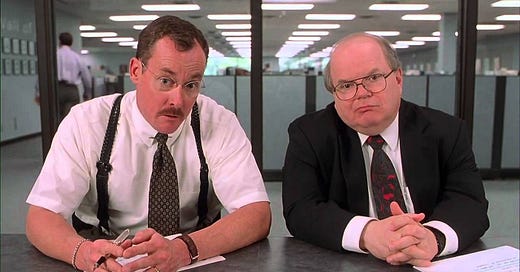This week, the NBA announced the results of its ten-month long investigation into Phoenix Suns’ owner Robert Sarver. The investigation was triggered by an ESPN report from last November, which alleged that Sarver created a toxic work environment (if you want, you can read a whole thing about that phrase…) with a lot of racist and misogynistic behavior. And the NBA concluded that the report was essentially correct, documenting several instances of racist language and sexist behavior by Sarver. As a result, the league fined Sarver $10 million and suspended him for one year.
Immediately, many deemed this reaction insufficient. One source for the original ESPN story called it “barely a slap on the wrist.” Players around the league agreed that the punishment did not go far enough. Suns superstar Chris Paul said the “sanctions fell short”; LeBron James went even further, saying the NBA “definitely got this wrong.”

I don’t think it’s the fine people are objecting to – $10 million is the maximum fine the NBA allows, and even if it’s just chump change to a billionaire like Sarver, it’s at least enough to inconvenience him. No, what seemed to really bother people was the “suspension” – many want Sarver thrown out of the league completely. But, as Adam Silver admitted, he can’t do that, because Sarver owns the team. When a reporter at the press conference pointed out that any normal person would be fired for a fraction of the behavior that Sarver exhibited,* Silver pointed out that “owner” is not a job you can be fired from: “There are particular rights here, of someone who owns an NBA team as opposed to someone who is an employee.”
*I don’t think this is really true, but I get the point.

And he’s right! Silver is only pointing out that there are two classes, defined by their relationship to the means of production, and that the power imbalance between those classes means that one can impose its morality on the other without itself being bound by that morality – this is just Marxism 101 from Silver.
The problem is that the NBA and the media spend so much time pretending “team owner” is a job, and not a property relationship: They rebrand owners as “governors” or write hagiographic TV shows about their genius. Even fans who criticize “bad owners” end up implying there is some way for an owner to be good at his job.
In the league’s own suspension announcement, the NBA imagines Sarver as a kind of employee. After all, what does it mean to “suspend” an owner if he still owns the team (and is therefore entitled to all the profits generated by that team)? According to the announcement, the “suspension” means that Sarver cannot:
“Be present at any NBA or WNBA team facility, including any office, arena, or practice facility.”
“Attend or participate in any NBA or WNBA event or activity, including games, practices, or business partner activity.”
“Represent the Suns or Mercury in any public or private capacity.”
“Have any involvement with the business or basketball operations of the Suns or Mercury.”
“Have any involvement in the business, governance, or activities of either the NBA or WNBA, including attending or participating in meetings of either league's Board (and their associated Board committees).”
These things only make sense as punishments if you think of “owner” as a kind of job – one that you would be prevented from doing if you couldn’t go to work. But, as Silver said, Sarver is an owner, not an employee, so none of this is actually a punishment for him. It’s barely an inconvenience. He doesn’t have to go to meetings of the league’s Board, or represent the team at public events? To me, that sounds like a year off from the very minor obligations an owner might have. He can’t have “involvement with the business or basketball operations,” but the people who do are still ultimately accountable to him, so what difference does that make?
The only real punishment here is that he can’t go to games or attend practices for a year, but fans get suspended longer than that if they get too drunk at games – that really is barely a slap on the wrist.
All of which leads me to the Stupid Question I alluded to in the title: What exactly is the point of an owner? Why do we allow a position like this to exist? Who does it benefit to preserve Sarver’s role? We don’t NEED them.
The NBA actually HAS an example of getting rid of an owner, when it forced Donald Sterling to sell the LA Clippers back in 2014. And that worked out great for everyone! The players didn’t have to play for Sterling – a longtime creep and racist. The fans got an owner who was willing to field a competitive team. Steve Ballmer got to yell sweatily from his seats. And even Sterling walked away with “a pile of gold.” Literally nobody is upset about how that went down…
The Sterling example was brought up at Silver’s press conference, and the commissioner drew a distinction, saying that even though what Sarver did was “beyond the pale,” it wasn’t as bad as Sterling’s behavior. But why are we splitting hairs here? The NBA is clearly better off without Sarver, so just get rid of him!
Of course, Silver knows better than to think this way. He works for the owners, and he knows that means the Sterling example can’t turn into a precedent. Once you start asking the question, “Which owners are worth keeping?” you realize very quickly that the answer is: None of them.



